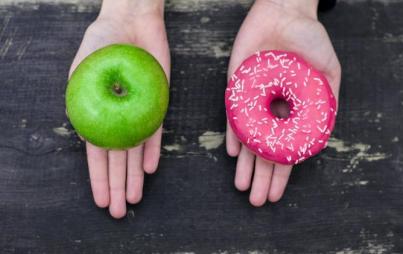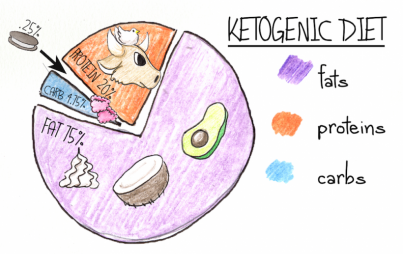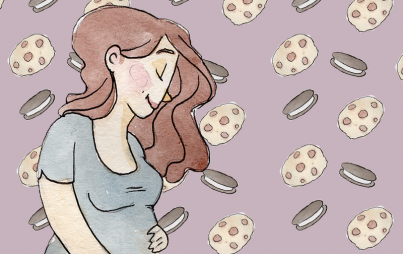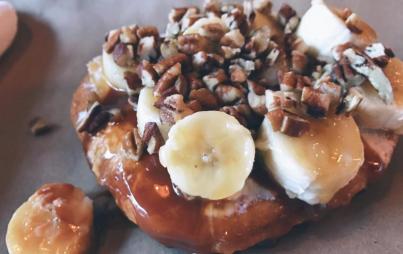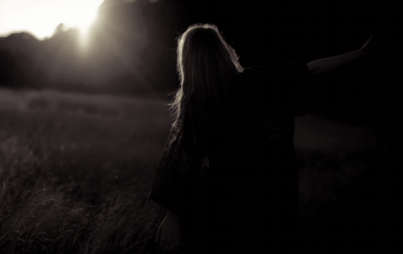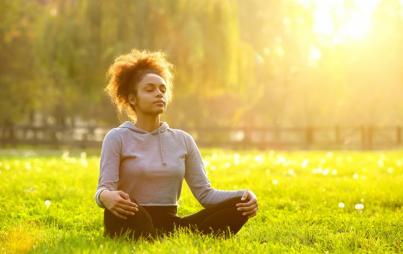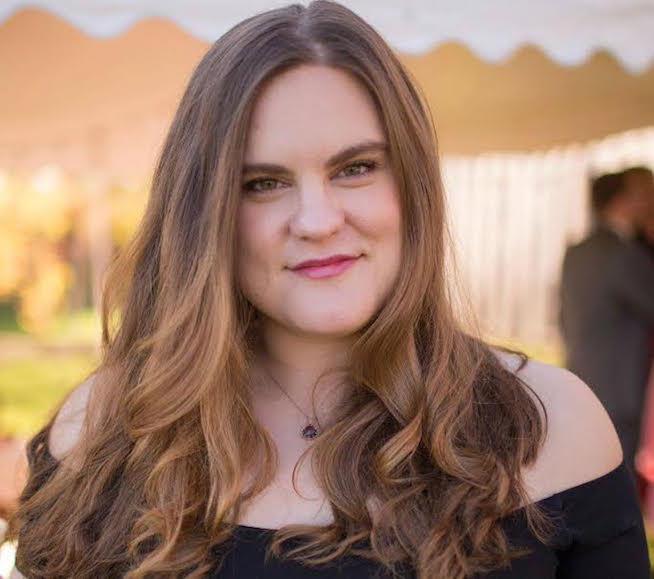
We call fat people lazy. They're not. Fat people are zealous. They will cleave and push and fight harder than anyone. They have been in battle since the day someone poked them in the soft part of their belly or slapped the last piece of Halloween from their chubby hand. No one works harder at anything than a fat person works on a diet they believe will make them thin. - Kelsey Miller
Last week I called Kelsey Miller, on the phone even — people do still do that — and we talked about stuff. And you should know that she is a really awesome human. Her book, Big Girl: How I Gave Up Dieting and Got a Life, hits shelves (or Amazon shipping boxes) tomorrow.
Big Girl speaks to all of us. The girl who wanted to be thin but couldn’t get (or stay) there. The girl who cried when she saw her reflection. The fat girl, the out-of-place girl, the girl who felt like she wasn’t enough. So...every girl? Every... person.
I've read it twice and I believe Kelsey is invested in this work, she really does want to share her story, even the ugly parts. She wants to impart the knowledge she's gained, and remind you that you aren't alone in this struggle that is sometimes our lives.
I thought the book was great. How was the idea for it born?
Well, thank you! I'd been writing about the lessons I'd learned with intuitive eating, rational fitness, and body positivity in my column, "The Anti-Diet Project" already. When I got the opportunity to write this book, I knew I wanted to tell the other side of the story — my personal journey into this cycle and out of it. There were so many things that influenced my relationship to my body, which I'd never shared publicly, and I was ready to tell my story. Mostly ready.
Can you tell me how the idea of intuitive eating has changed your life and relationship with food?
It was as if the world cracked open for me when I starting working with the principles of intuitive eating. All of a sudden, I realized I wasn't just a big, fat, damaged loser who couldn't control herself and just stick to the damn diet. Believing that I was the problem was the problem. Intuitive eating is just a way of deprogramming yourself from years of dieting and disordered eating so you can eat like a normal person. That means you have to accept yourself as a normal person, a capable person, etc. That was a challenge, to be sure! It still is! But as hard as it is, it's better to be fighting for myself than against for the first time. Yikes, I sound so self-help-y.
Some folks see intuitive eating as just another "diet." I assume you're not in this group. Can you tell me how it differs for you?
That was a mind-blowing surprise to me when I first heard it! I'm still stunned and dismayed by it, because my experience has been so different. The root of this whole thing is body acceptance. All the intuitive eating principles are vital, but it's impossible to really embrace and internalize them without body acceptance in the mix. If I'm focused on my weight that automatically changes my relationship to food. Only when I can really, really decide to be OK with myself does my eating truly feel normal. The same goes for exercise. It's understandable that many people think intuitive eating is just a roundabout way to getting thin (because everything else in the world is constantly telling us to get thin), but I really had to learn about the impact on my weight as a side effect — not the goal. The goal is to foster a neutral, healthy relationship with food.
You allude to some mental health issues in the book. I'm bipolar and I see a lot of commonalities. Are you open to discussing your mental health?
Sure! I'm not bipolar, but I've experienced it within my family. Anxiety and OCD have been my two main struggles with mental health, as I get into in the book, and I'm a big fan of therapy. I'm a big fan of talking about these things openly, too. As far as I can tell, that's the only way to put an end to all the stigma and misunderstanding around mental health issues.
As an ED survivor, I feel a lot of solidarity here. What have you heard from readers of your Refinery29 column?
I've gotten some incredible emails from readers, many of whom are in various stages of illness or recovery. I know how hard it is to openly acknowledge these things — I don't know that I would have been able to be so open about my own struggle when I was really in the grip of it. I get plenty of nasty feedback too, but so does everyone who writes online. For the most part, I hear from people who feel that solidarity you express. It's wonderful and sad, too. We all feel so alone sometimes, particularly when dealing with these issues, but none of us are. That's what I like to remind readers (and myself) of, a lot, because I think we need to hear it: we are so not alone.
Do you like cake?
If it's ice cream cake, hell yeah. If it's regular cake, eh. Don't we all enjoy the icing more anyway? Is that just me? Oh shit, am I the weirdo who doesn't like cake?
If you don't like cake, do you like brownies?
Oh that's a definite yes. I like brownies for their simplicity as much as their deliciousness. I like that I can whip up a batch in 30 minutes and bring it to my friends house like, "Oh, here are these fresh, homemade brownies, you're welcome!"
If I come to New York can we eat cake and/or brownies?
Obviously. But can I make a case for ice cream? I'm an ice cream kinda gal.
Is it creepy that I'm basically asking you on a date?
It would be if I wasn't into it, but I totally am, so we're good.



